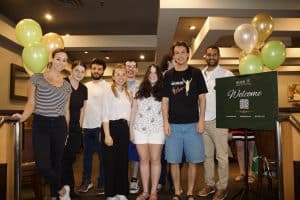Support Programs
New members are always welcome!
The Brain Injury Association of Peel and Halton (BIAPH) is dedicated to making a profound difference in the lives of individuals affected by Acquired Brain Injury (ABI) and their families. Through our support programs, BIAPH seeks to provide a supportive community that fosters connection, understanding, and growth. From the ABI Survivor & Caregiver Support Groups to specialized programs like the HeadSpin: Youth & Young Adult Support Group, Caregiver Relief Program, and Peer Support Program, BIAPH aims to address the unique challenges faced by those impacted by ABI. By offering spaces for sharing, learning, and mutual support, our programs strive to empower individuals and caregivers, enhancing their well-being and facilitating a journey towards resilience and recovery.
ABI Survivor & Caregiver Support Groups
Our support groups offer a secure and nurturing environment where members can openly share and express their experiences related to their Acquired Brain Injury (ABI) journey. It serves as a platform for survivors and caregivers to come together and discuss their challenges, difficulties, and successes while supporting their family and loved ones. Engaging with fellow members and families allows individuals to gain valuable insights into living with an ABI and learn from each other’s experiences.
To enrich our support group sessions, we regularly invite guest speakers who deliver presentations on relevant topics and introduce various resources available to those in need. These presentations aim to raise awareness and provide additional knowledge and support to our members, further empowering them on their ABI journey.
Headspin: Young Adult Support Group
The Headspin group serves high-functioning young adults with Acquired Brain Injury (ABI), aiming to build a community through leisure activities. Regular meetings encourage open communication, exchange of resources, and coping strategies.
Committed to inclusivity and understanding, Headspin fosters friendships and enhances well-being through community engagement and positive social interactions. Additionally, the group focuses on empowering its members by providing them with opportunities to take on leadership roles within the community, fostering a sense of accomplishment and purpose. This approach not only strengthens the community bond but also contributes to the personal growth and self-esteem of its members, further enriching their recovery journey.
Caregiver Relief Program
Our program recognizes the immense responsibilities and challenges faced by caregivers in caring for their loved ones. To lend a helping hand, we offer a Personal Support Worker (PSW) for four hours every week for a duration of one year to eligible individuals.
Services include attendant care (e.g., personal care, supervision/support within the home to allow caregiver to leave ensuring safety for loved one), and community social support (e.g., assistance accessing community programs or activities).
Our main objective is to provide temporary care, allowing caregivers to take a break, run errands, or attend to important tasks, while their loved one spends time with the support worker. We carefully review applications on a case-by-case basis to ensure that those who need our services the most receive priority. Preference is given to individuals who may not have the financial means to pay for services and have limited access to other government funded resources.
Peer Support Program
Our Peer Support Program aims to provide mentorship and guidance to individuals living with an acquired brain injury (ABI). Through this program, we connect them with someone who has personally undergone a similar journey involving ABI. The mentors play a vital role in offering support, sharing their own life experiences, and providing valuable knowledge to those seeking assistance. This program is organized in partnership with local affiliated brain injury associations throughout Ontario. Within the BIAPH branch, Sue Brushey, an experienced RSW with a longstanding commitment to supporting the ABI community, oversees the initiative.
As a Partner in the program, you have the opportunity to learn from someone ‘who has been there’ and can offer you guidance and support based on their own personal experiences living with ABI.
The role of the Mentor is to provide emotional and social support, share information, and resources with partners who are coping with a similar ABI-related situation.
Quick Links
Donate
We need your help! Your donation will directly support our clients by sustaining and expanding our programs and services.
Contact Us
6835 Century Avenue,
Suite 201, Mississauga,
Ontario L5N 7K2




